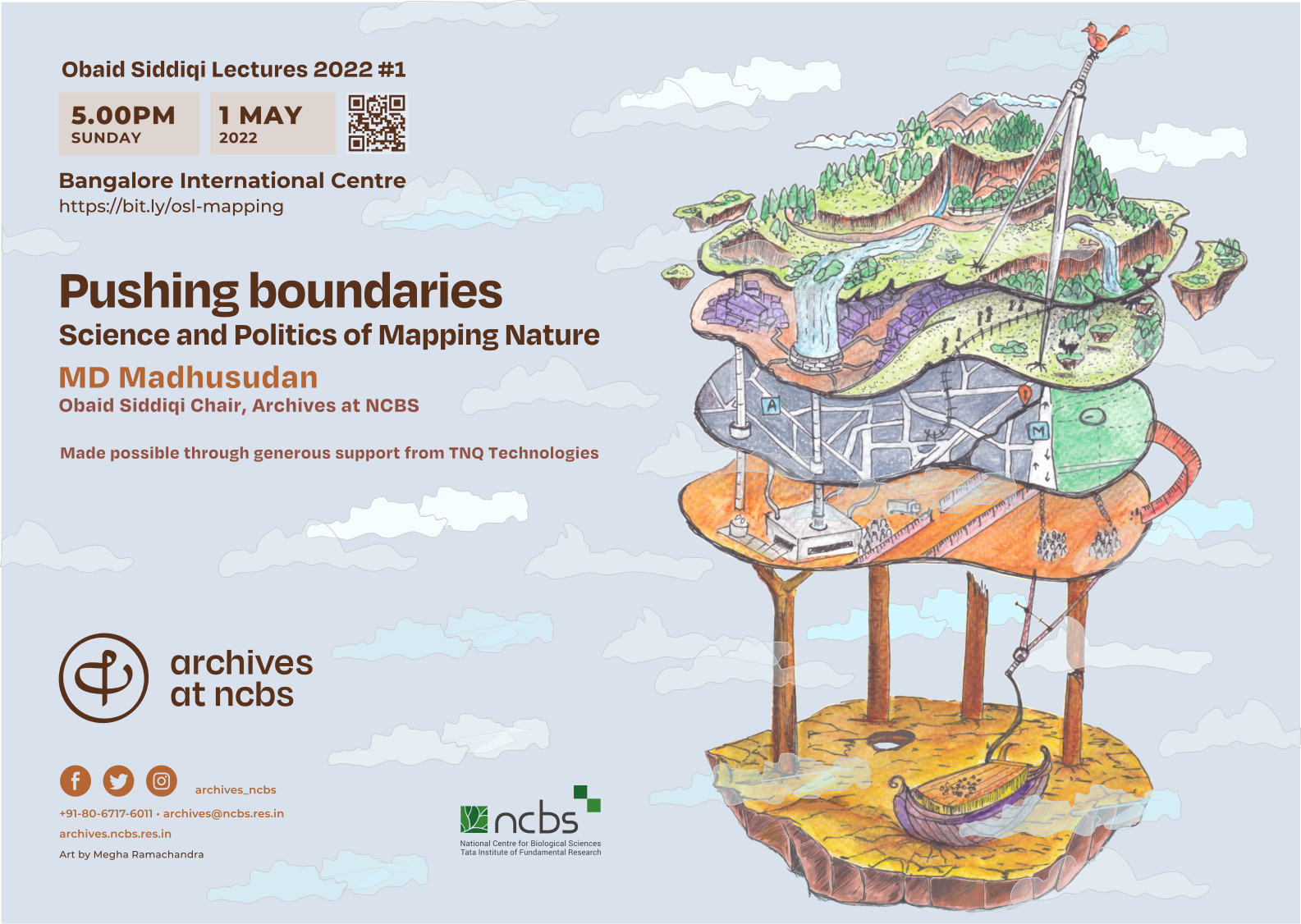Obaid Siddiqi Lectures - Pushing boundaries: Science and Politics of Mapping Nature
Archives at the National Centre for Biological Sciences
Obaid Siddiqi Lectures
Annual lectures delivered by the Obaid Siddiqi Chair in the History and Culture of Science at the Archives at NCBS. Supported by TNQ Technologies.
Pushing boundaries: Science and Politics of Mapping Nature
MD Madhusudan
Obaid Siddiqi Chair, Archives at NCBS
Sunday, May 1 2022. 5:00pm.
Bangalore International Centre
Free and open to the public

Abstract:
Maps are a way to freeze space and time. As a primarily visual artefact, they are also remarkably more accessible than oral, textual or numerical testimonies of complex spatio-temporal arrangements.
Who makes a map, why they want to make a one at all, and on what authority and legitimacy they draw, determine the map they produce. Governments make maps all the time. Such an official map of forests produced by a formal state authority, say, can look very different from one drawn under the authority of science. Or a map made by the communities that use and dwell in and around forests, can look still more different. With not only land, but even water, wind and sun, all becoming monetisable, business corporations too are keen on making maps, with theirs unlikely to resemble the other three. Maps are thus not only representations of place and time, but are also mirrors to the contestations that animate place and time.
In this talk, I look at examples of how forests, 'wastelands' and protected areas have been mapped, to examine and illustrate the essentially political nature of mapping. There are—and will always be—many maps of nature and its ever-morphing boundaries with human culture. They must serve as invitations to a conversation about the many ways of defining, delineating and sustaining nature, than as calls to battle for the one map to end all conversations.
Bio:
MD Madhusudan is a conservation scientist, who, for over two decades, has studied the interface between people and large wild animals, trained students, published papers, worked with individuals and collectives to mobilize conservation action, and participated in the making of policies striving to reconcile the needs of wildlife and of humans. Along the way, he helped establish, grow and manage Nature Conservation Foundation, a nonprofit that strives for knowledge-based and socially-responsible nature conservation across India. Madhu is currently the Obaid Siddiqi Chair in the History and Culture of Science at NCBS, working on a couple of projects that take a historical view of the science and practice of nature conservation in India. In this talk, he brings together two things that fascinate him: maps and nature.


